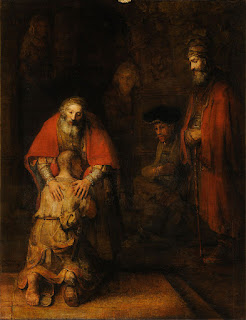By Jonathan Imbody*
In over two decades of public policy advocacy in Washington, DC,
I have never witnessed such division among colleagues and people of faith as in
this polarizing election.
Taking a deep breath and a step back to remember some bedrock
biblical principles can help us navigate this tumultuous season. We can emerge
on the other side of the election with both our relationships and our
principles intact.
Consider the following passages and their implications for a time
such as this:
"For rulers are not a cause of fear for good behavior, but for evil" (Romans 13:3).
Until His heavenly kingdom finally comes in its full glory, God's fundamental purpose for establishing government here on earth is to reward good and punish evil. So choose candidates who demonstrate by their words and actions that they understand the difference between good and evil and will govern accordingly. Otherwise it's a crapshoot on who and what gets rewarded or punished. After years of cultural decay and the erosion of religious liberties, people of faith are more vulnerable than ever to governing authorities who reward evil and punish righteousness (for examples, see www.Freedom2Care.org)."I also do my best to maintain always a blameless conscience both before God and before men" (Acts 24:16).
Pray for God's wisdom on voting and also be prepared to explain to others how your reasons fit the faith. If you're voting for a candidate with obvious flaws of character or policy, explain whatever higher principle motivates you to vote despite the problems. Otherwise you risk appearing to compromise your faith for expedience, personal preference or just plain ignorance."Now accept the one who is weak in faith, but not for the purpose of passing judgment on his opinions" (Romans 14:1).
Consider what your family and friends already know: You are not always as wise and righteous as you wish you were. And your disagreeing colleagues might not be as dumb or faithless as you think they are. So in humility remember that each believer will each stand before God on the final day, and in the meantime He has not appointed any of us as a surrogate judge."Or do you not know that the saints will judge the world?" (1 Corinthians 6:2).
The Scriptures and the Holy Spirit provide the Christian believer with an understanding of how the King of the universe rules over His creation. He equips us with the ability to discern and choose good over evil and to exercise the antidote of love to counter the disease of enmity. God's Word illuminates this truth and power in a way that natural revelation (the testimony that the created world provides to its Creator and the voice of personal conscience He gives to each person) displays only dimly.
That means Christians carry a special responsibility, as far
as within their power, to guide government toward good and away from evil. We
do so for the good of others, and especially for the vulnerable.
In a democratic republic, voting is our bare minimum responsibility.
Not voting represents a dereliction of duty and leaves governing to those who
do not benefit from God's clear revelation. That puts people at risk whom God calls
us to protect.
So if you know God's principles, vote for those who will
come closest to carrying out those principles. If you can't in good conscience vote
for a main party candidate for president, write in your choice and make sure to
also vote for U.S. Senators and Representatives and state and local officials.
*Jonathan Imbody is the author of Faith Steps (http://www.freedom2care.org/learn/page/faith-steps-book-study-guide),
VP of Government Relations for the Christian Medical Association (www.joincmda.org) and Director of
Freedom2Care (www.Freedom2Care.org).
---
Rembrandt van Rijn paintings above:
1.
Conspiracy of Batavians under Claudius Civilis
2.
The Parable of the Laborers in the Vineyard
3.
Return of the Prodigal Son
4.
Matthew and the Angel




